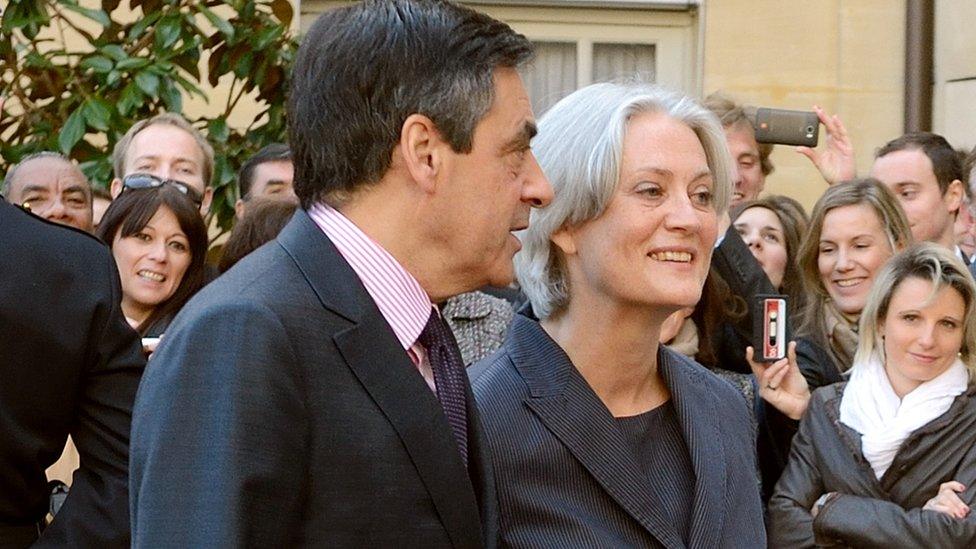Fillon plays the waiting game - but will it cost him?
- Published
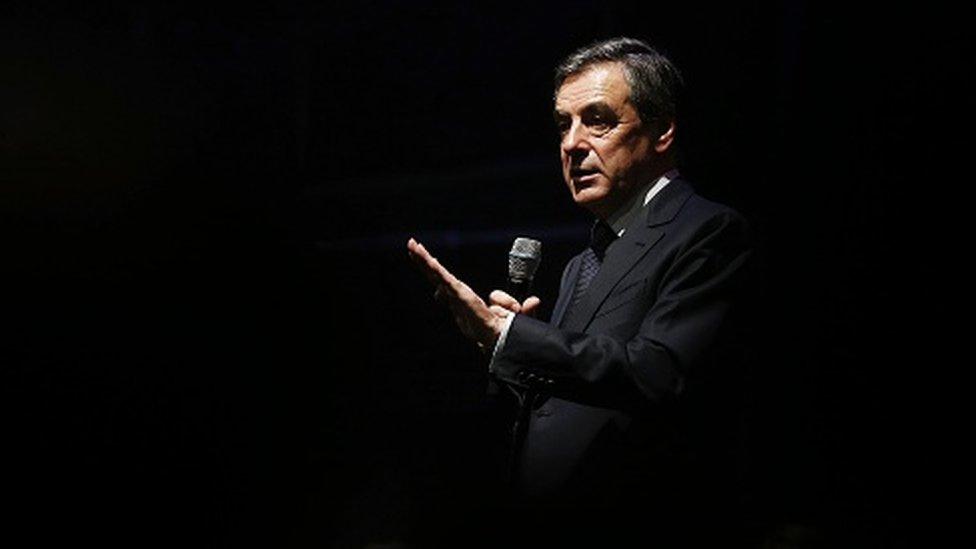
Mr Filllon's message may be getting harder for voters to swallow
Francois Fillon knows only too well the knife that hangs above his head.
He knows the reams of newsprint devoted to the financial allegations against him and the hours of television debate over the problems of campaigning amid the scandal.
Yet he has walked stony-faced past the protests on his own campaign trail.
Mr Fillon knows that much of his country is waiting for him to resign.
And so he knows, when he unexpectedly cancels an appearance at one of the calendar's most important electoral events and calls a last-minute press conference, it will grab attention: he knows it's the knife that France is watching.
And so, on Wednesday, with his campaign headquarters packed with press, the live cameras trained on his heavy-set face and the twittersphere ablaze with speculation over who he had spoken to, who would be there with him, who had just re-launched their campaign website, he smiled and confirmed that he would continue as the Republicans' candidate, exactly as before.
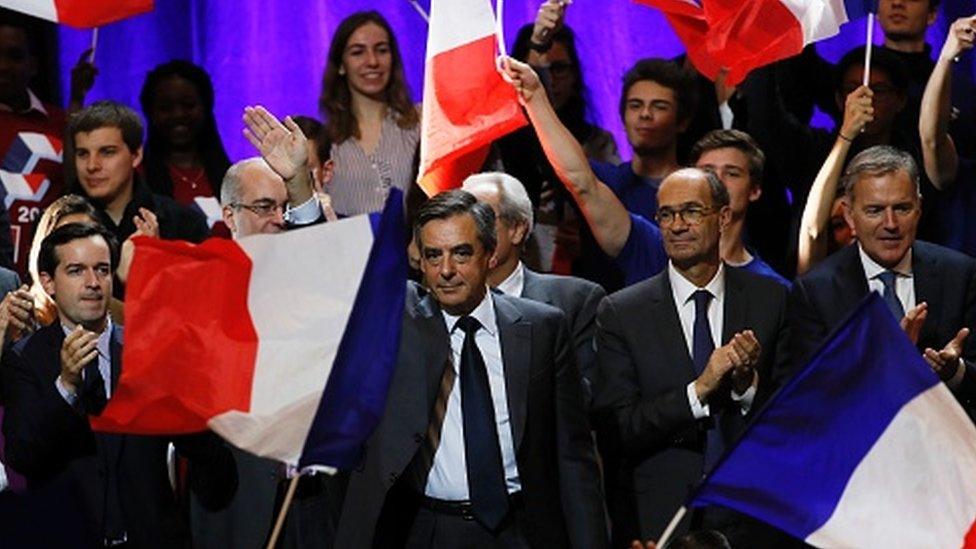
Replacing Mr Fillon as Republican nominee at this late stage would be a big gamble for the party
Exactly as before, that is, with one crucial difference. He told the waiting media that he would appear before a judge in two weeks' time to be placed under formal investigation for embezzlement of public funds.
Having originally said he would step down if he was ever placed under formal investigation, Mr Fillon has changed his mind. The process against him was, he said "a political assassination", and "only the people" could decide his fate in the polling booths next month.
Within hours, his foreign affairs spokesman Bruno Le Maire had quit the campaign, saying that he believed in "standing by what one has said", calling it "indispensable to political credibility".
And Bruno Jeanbart, director of polling company Opinionway, says that right-wing voters might buy Mr Fillon's claim that the case is politically motivated. Either way, he says, this could become a turning point.
"This could be a very important moment in the campaign," Mr Jeanbart said. "But it's very difficult to predict.
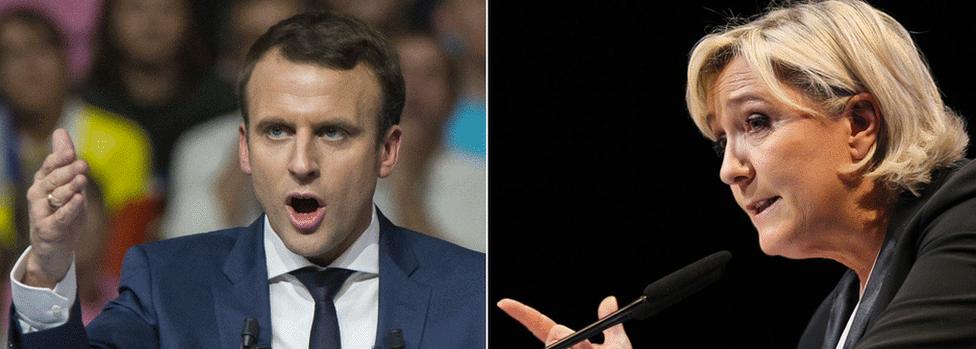
Emmanuel Macron and Marine Le Pen are seen by the polls as most likely to reach the run-off round of the election
"So far, many right wing voters have stuck with him because they want a change of government. But if they think his candidacy will finish badly, it's possible they will shift their support elsewhere - whether to [liberal centrist] Emmanuel Macron or to [far right leader] Marine Le Pen."
Mr Fillon's decision to cling on also sharpens the thorniest question for his party.
He's due to be placed under formal investigation just 48 hours before the deadline to confirm France's presidential candidates.
Replacing him as Republican nominee at this late stage would be a big gamble for the party, but having a candidate under investigation could also backfire.
Polls are already suggesting that support for Mr Fillon has slipped, and would leave him in third place if the first round of voting were held today.
In the meantime, it's become something of a habit for Mr Fillon to march voters, journalists - and sometimes his own campaign advisers - to the top of the campaign hill, before declaring that he was marching straight on down the other side.
It gives him a good platform for his message, but the message itself may be getting harder for voters to swallow.

More on France's presidential election:

- Published1 March 2017
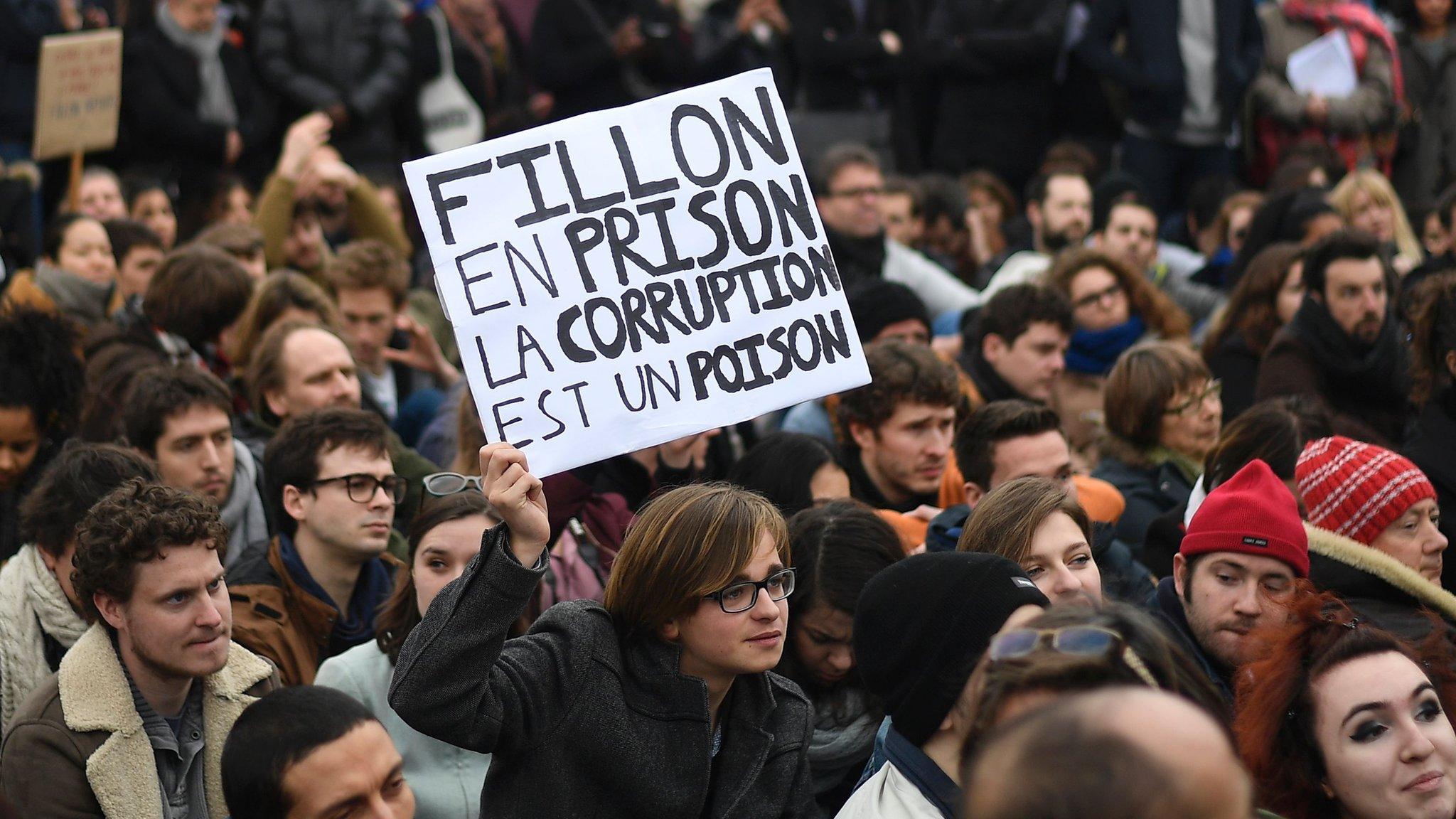
- Published24 April 2017
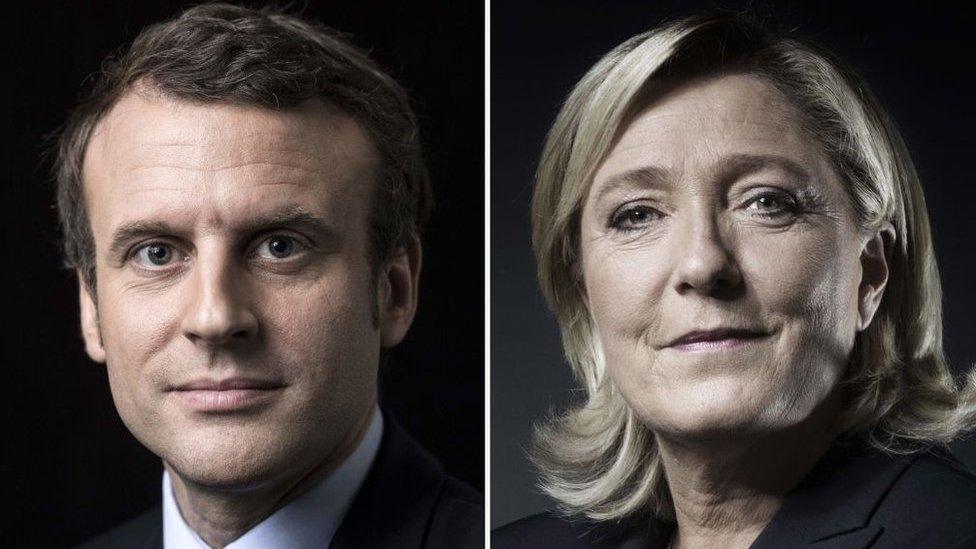
- Published29 March 2017
